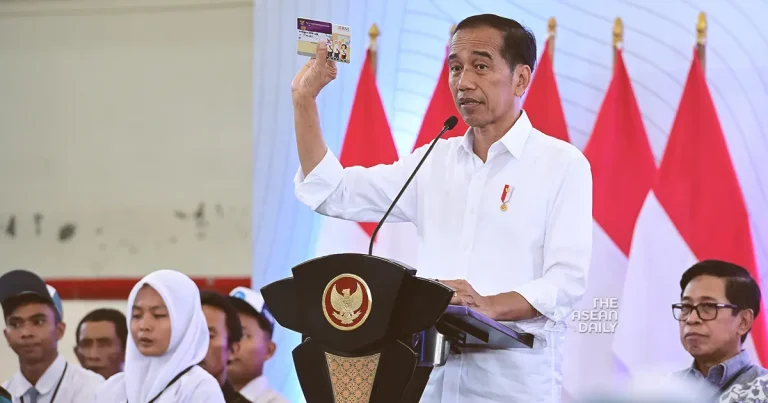29-5-2024 (JAKARTA) In a sweeping move aimed at streamlining bureaucratic practices and enhancing public service delivery, Indonesian President Joko Widodo has issued a directive prohibiting government officials from developing new mobile applications. This decision comes as the nation kickstarts an ambitious initiative to integrate systems and data across the approximately 27,000 existing applications operated by various ministries and regional administrations.
At the launch event of INA Digital, a unified digital platform, held at the state palace in Jakarta on Monday, President Widodo, popularly known as Jokowi, emphasized the need for the state bureaucracy to facilitate and simplify public services. Addressing an audience of ministers and government officials, he questioned the proliferation of applications, stating, “But how can it be easy when ministries, government bodies and regional administrations have more or less 27,000 applications?”
Highlighting the tendency for new applications to be developed with each leadership change, Widodo expressed concern over the redundancy and inefficiency this practice breeds. “Every time there’s a new minister, a new director-general, there’s a new application. It’s the same thing with regional administrations. If there’s a change of governor or agency head, there’s a change of application,” he remarked.
The integration of public services into the INA Digital platform is also expected to yield substantial cost savings for the government. Widodo referenced a previously allocated budget of 6.2 trillion rupiah (US$388.11 million) for the development of new online applications, which was scrapped earlier this year.
The sheer number of applications operated by various government entities is staggering, with the health ministry alone reportedly contributing some 400 applications, while an unnamed ministry appeared to have another 4,000 under its jurisdiction, according to the Jakarta Post.
Minister of State Apparatus Utilisation and Bureaucratic Reform Abdullah Azwar Anas clarified that INA Digital is “not a (new) platform or application, but rather the implementation of an integrated digital public service system.” Its primary goal is to provide a single system that allows Indonesians to access applications operated by different ministries and government bodies without having to repeatedly enter their national identification numbers.
However, users will still need to utilize different apps to access specific public services. Azwar Anas stated that by September, INA Digital will have integrated the services of at least 15 ministries and government bodies, including the home ministry, the health ministry, the education, culture, research and technology ministry, and the social affairs ministry.
According to Minister of State-Owned Enterprises Erick Thohir, the INA Digital super application, which combines multiple services into one platform, is being developed by 400 local digital talents under the GovTech Indonesia project. GovTech Indonesia is led by state-owned enterprise Perum Peruri, along with the National Electronic-Based Government System (SPBE) Coordination Team and various ministries and agencies.
After an initial trial phase in May, the INA Digital platform is expected to be available to the public within four months, as reported by local media platform Kompas.
President Widodo had previously set the wheels in motion for INA Digital earlier this year by earmarking nine priority services to be integrated into the platform, including education, health, social assistance services, police services, digital payment services, a data exchange platform, state apparatus services, population administration services, and a one-stop public services portal.
The launch of INA Digital comes at a critical juncture, as Indonesia grapples with an increasing number of cybersecurity threats targeting its public services. According to international cybersecurity firm Kaspersky, Indonesia suffered the second-highest number of local cybersecurity threats in 2023, second only to Vietnam. The country’s public service has endured high-profile attacks, including a reported breach of the General Elections Commission’s (KPU) database in November 2023, which put voters’ personal data up for sale on black market forums, less than three months before the February general election.




